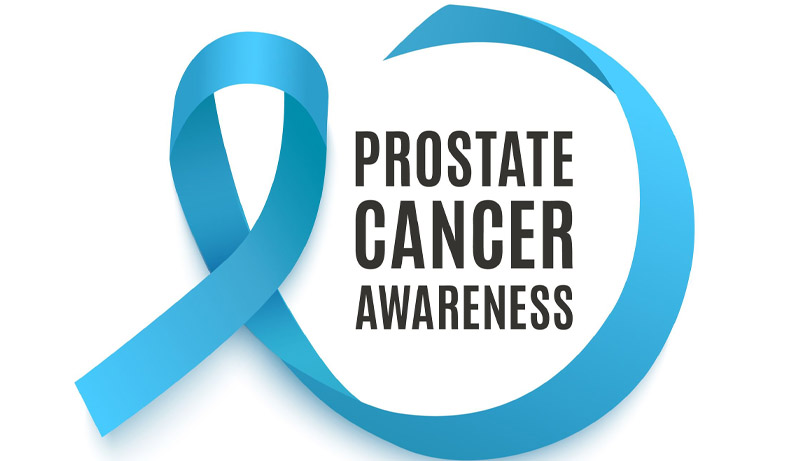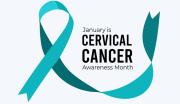
September is National Prostate Cancer Awareness Month and it is important to help men and their family understand a disease that will effect on average, one in nine men over the course of their life according to cancer.org. Urologist Dr. Michael Schutz, of Jersey Urology Group in Somers Point, shared that statistically, prostate cancer is second only to lung cancer as a cause of death in men.
Screening Tests for Prostate Cancer
According to Dr. Schutz, prostate cancer is often asymptomatic in the early stages. Like all cancers, discovering prostate cancer early leads to much more successful outcomes. Screening for prostate cancer is testing to find the cancer before there are symptoms. Dr. Schutz said he practices informed decision making with all of his patients saying that it is important for each patient to understand and weigh all of their options. Among the variables that Dr. Schutz said are part of that informed decision making with the patients are age of the patient and life expectancy, if they have symptoms, or should they wait and watch to see if there is any growth of the prostate. After discussing the pros and cons of screening with their doctor, some men will choose to be screened according to Dr. Schutz.
Know your Numbers
Normally initial testing for prostate cancer is the prostate-specific antigen or PSA blood test. Prostate-specific antigen is a protein made by cells in the prostate gland, both normal cells and cancer cells, according to Cancer.org and while PSA is mostly found in semen, a small amount is also found in blood.
The PSA level in blood is measured in nanograms per milliliter (ng/mL). The chance of having prostate cancer goes up as the PSA level goes up. While there is no set cutoff number can guarantee a man does or does not have prostate cancer, most men without prostate cancer have a PSA of 4ng/ml of blood. A range of 4-10 is considered borderline and has about a 1 in 4 chance of having prostate cancer and that jumps to over 50% when the PSA is over 10. Dr. Schutz suggested that an elevated PSA will would normally be followed by a digital rectal exam or DRE.
Risk Factors for Prostate Cancer
Most patients initially discuss their prostate health with their primary care physician, according to Dr. Schutz. Then, often a patient will be referred to an urologist at the suggestion of the primary care physician. While prostate cancer may not reveal any symptoms in the early stage, being aware of the risk factors is important, according to Dr. Schutz. Though the reason is not clear, the incidence of prostate cancer in African American men and in Caribbean men of African descent is higher than other races, an increased incidences of roughly 60%. When it does develop in these men, according to the American Cancer Society, it tends to develop at a younger age. Age is also a factor in the development of prostate cancer. While rarely found in men under 40, the chance of developing prostate cancer rises rapidly after the age of 50. Men who have a father or brother who have already been diagnosed with prostate cancer have a greater chance of developing the disease and should consider being screened earlier. Dr. Schutz said the rule of thumb is to consider screening after the age of 50 unless there are contributing factors, especially a first degree relative who developed prostate cancer prior to 50 should be screened at 40 or 45. “We really need to see those men who are not visiting their primary care physician and talk to them about prostate health, any symptoms they may be experiencing and screening”, he added.
Symptoms of Prostate Cancer
Dr. Schutz said the most common reason men will come to their urologist is for voiding issues such as a weak urine stream and feeling the urge to go frequently. Some of those discomforts will be from BPH or benign prostatic hyperplasia, is a condition in which the prostate is enlarged. With BPH, there is an overgrowth of prostate tissue which pushes against the urethra and the bladder, blocking the flow of urine. While it is fairly common, the likelihood of BPH increases with age with 7 out of 10 men experiencing some BPH related issues after the age of 70, it does not increase a man’s chances of developing prostate cancer.
For others, those symptoms of frequency and pain during urination may be due to prostate cancer. While it is uncertain exactly how prostate cancer develops, on a basic level it is caused by changes in the DNA of a normal prostate cell. DNA is the chemical in cells that makes up genes, which control how cells function. While it is DNA that causes children to look like their parents, DNA does more than just dictate how a person will look.
Some genes control when cells grow, divide into new cells, and die. Oncogenes help cells grow, divide and stay alive. Tumor suppressor genes tend to control mistakes in DNA or cause cells to die at the right time. Cancer can be caused by DNA mutations that keep the oncogenes turned on or turn off tumor suppressor genes and can lead to the cells growing out of control. Should the screening tests look abnormal, Dr. Schutz said a biopsy might be ordered to determine the presence of cancer or if there are no symptoms or the patient is over the age of 75 they may decide to weigh the options and continue to watch for any growth in the prostate or if symptoms like trouble voiding worsen.
Trends in Treating Prostate Cancer
Dr. Schutz said the old method of treating prostate cancer was surgery and radiation. The options are not so limited today. “How we treat prostate cancer has changed. For lower grade prostate cancer we follow the patients and we monitor the growth and avoid the morbidity of treatment. We want to maintain the best quality of life for men.” He added that early detection will give the physician and the patient the widest range of options for treatment.
Dr. Schutz said prostate cancer is not like other cancers, it is not effected by smoking but he said for general well-being, a heart healthy diet is a prostate healthy diet. “The most important thing people can do is get up and move. If you are a 65-year-old man living a rather sedentary life, start walking. Get some fresh air, it is good for your overall survival. Making good decisions like knowing what your PSA is, talking with your physician and knowing if you have any additional risk factors are all important.
Shore Cancer Center is hosting a free prostate cancer event from 1-3 p.m. Friday, Sept. 25. For more information or to schedule an appointment for prostate screening contact the Shore Medical Center Cancer Education and Early Detection office at 609-653-3484.










